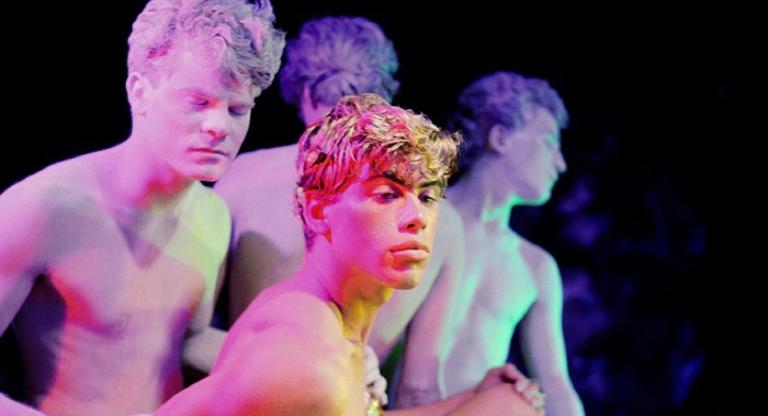
Peter Brook's 1963 adaptation of William Golding's 1954 novel Lord of the Flies has a title sequence a bit like this spring’s bullet-time-plagued Kong: Skull Island . With extreme economy it presents us with How We Got Here: from the stately halls of private schools and intramural cricket matches to military parades and rows of ICBMs. Whereas Kong concentrates the years 1944 to 1973 into two minutes that link America’s advancements in physics and genetics to its political deterioration, Lord of the Flies logically deduces the inevitability of more World Wars from the social structure of British and other Western imperialist nations.
Shot in Puerto Rico (Aguadilla, El Yunque, and the island of Vieques) in shimmering black and white (by first-time DP Tom Hollyman), Lord of theFlies invites us into a world of visual and moral grayscale. The vast expanses of Caribbean sky with its sculptural masses of cumuli are reflected on earth by the ethical ambiguities plaguing the prepubescent triad of Ralph, Jack and Piggy. At least three distinct groups of boys have crash-landed on a tropical island, and they find each other on its shores. Ralph and Piggy are clad in the shirts and ties of a boarding school, while Jack leads a group of young seminarians in black cassocks (in a scene worthy of Buñuel, we first meet the clerics-in-training marching along the beach singing Kyrie Eleison in angelic harmony). A power struggle immediately develops around procuring essential provisions for survival. The clerics become hunter-gatherers, while the schoolboys occupy themselves with more domestic tasks like maintaining a fire. A conch-shell becomes the token of authority standing in for a scepter, held by the democratically elected chief. Like Robinson Crusoe—who spontaneously recreated British middle-class habits in his solitude—the boys set about simulating the society of their parents (“We’re not savages,” Jack declares. “We’re English, and the English are best at everything”).
Golding himself defined Lord of the Flies as “an attempt to trace the defects of society back to the defects of human nature.” Presumably he meant for Jack’s militarism and Ralph’s naïve trust in democratic principles to be seen as innate qualities that would have emerged regardless of what kind of society they were raised in. Golding accounted for his book’s popularity among American undergraduates in the early sixties by saying, “They’re very cynical. And here was someone who was not making excuses for society.” But that’s exactly what he’s doing. By tracing brutality and lack of compassion to human nature and the individual, he’s letting society off the hook.


